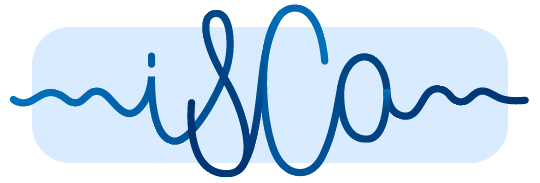- Home
- Activities
- Special Interest Groups
- Security and Privacy in Speech Communication - SIG-SPSC
Security and Privacy in Speech Communication (SPSC)
Click here to visit the SIG SPSC website!
Aims. The purpose of the SPSC is to promote research in those aspects of security and privacy which are related to speech communication; to provide a platform for communication for members of ISCA who are interested in security and privacy; to promote interdisciplinary research and collaboration also beyond ISCA, with areas such as user-interface design, study of the law, cryptography, and cognitive sciences.
Motivation. An increasing number of devices are connected to the Internet and feature a microphone. These devices can provide many useful services such as personal speech assistance and security monitoring. Moreover, automated speech interfaces are becoming more common in many services such as banking, call centres and medical services. This trend however exposes users to an increasing number of threats to their privacy and security. The growing amount of data increases the consequences of breaches, whereas the risk of a breach is increasing with the number of locations where data is processed and stored, the amount of data, the processing methods, storage formats and with whom the data is shared. Privacy and security is an interdisciplinary topic which ranges over all areas of ISCA, including among others, computer science, linguistics, phonetics, acoustics, cognitive sciences and medical sciences. To counter threats to security and privacy we therefore need collaboration across all areas of expertise within ISCA.
The analysis of security and privacy in speech communication, while aiming at transparency to non-experts in speech technology (e.g., system integrators, management, journalists, and the larger public), requires to develop taxonomies to interrelate research outcomes within a bigger picture. These taxonomies provide classification schemes and semantics to security and privacy in speech communication regarding, e.g.
- The information in speech which merits protection,
- Capture of speech signals,
- Processing of speech data,
- Storage of speech data,
- Entities in speech data life-cycles,
- User-interface design,
- Case studies and
- Technology safeguards.
In other words, SPSC will not only tackle safeguard technology but also will pursue to frame their context in a way useful to services and products in speech communication.
Board. The officers for 2019-2020 are:
- Chair and ISCA liaison representative: Ingo Siegert, Otto-von-Guericke Universität Magdeburg, Germany
- Secretary: Sneha Das, Technical University of Denmark
ISCA-supported event
- SPSC Symposium 2023
- SPSC Symposium 2022
- SPSC Symposium 2021
- NII Shonan Meeting Privacy, Ethics, and Legislation for Speech Communication, 23-27/3/2020, Shonan Village Center, Kanagawa, Japan
- Workshop Privacy: Speech meets legal experts, 29/1/2020, Eurecom, Sophia Antipolis, France
- Special session Privacy in Speech and Audio Interfaces at Interspeech 2019, Graz, Austria.
Other events
- AI Regulation for Speech Technology (held online)
- Workshop Privacy and Security in Digital Assistants, PerCom 2020, Austin, Texas.
Join the SIG: please contact Jennifer Williams, University of Southampton, UK
